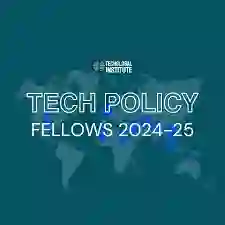If you’re passionate about how technology shapes society, democracy, and public policy, the Tech Policy Press 2026 Fellowship Program might be your next big opportunity.
This year-long, part-time fellowship is designed to empower independent thinkers—journalists, researchers, lawyers, and policy professionals—to create public-interest work that informs both everyday readers and policymakers worldwide.
Since launching in 2023, the program has supported 15 fellows from seven countries, enabling them to dive into topics like AI governance, digital rights, tech regulation, and the relationship between corporations and governments.
What the Fellowship Focuses On
The fellowship encourages deep, independent projects that explore how technology affects society and democracy.
Whether you prefer investigative reporting, feature writing, policy analysis, or academic-style commentary, there’s room for your work here.
Tech Policy Press is especially looking for projects that:
-
Highlight underreported tech issues
-
Amplify voices from marginalized or underrepresented communities
-
Address global or non-Western tech policy challenges
-
Provide original insights or frameworks for understanding digital power dynamics
Fellowship Details and Structure
-
Duration: January 2026 – December 2026
-
Work Setup: Remote and part-time, as independent contractors
-
Stipend: USD $10,000, paid quarterly
Fellows also receive:
-
Editorial guidance and feedback
-
Monthly cohort meetings
-
Peer collaboration and networking opportunities
-
Access to a global community of fellows
Expectations for Fellows
Fellows are expected to:
-
Produce at least one substantial piece of reporting or analysis per month
-
Attend monthly meetings and editorial check-ins
-
Collaborate with Tech Policy Press staff and other fellows
-
Meet all publishing deadlines and editorial standards
-
Disclose any conflicts of interest
Who Should Apply
This fellowship is ideal for:
-
Journalists, including freelancers and independent reporters
-
Researchers and academics focused on tech and policy
-
Lawyers, public policy professionals, and advocates working in digital governance, rights, or ethics
Applicants should show:
-
Interest or experience in tech policy, media, digital rights, or democracy
-
Commitment to high-quality, original public-interest work
-
Ability to work independently on long-term projects
Eligibility Highlights
-
Open to applicants worldwide, with emphasis on the Global Majority and underrepresented communities
-
Must produce original, publishable work
-
Prior publishing experience required (journalism, policy analysis, essays, podcasts, newsletters, or research articles)
-
Unpublished materials like theses or classwork will not be considered
Application Requirements
Applicants must submit:
-
CV or resume
-
Cover letter (max 2 pages) outlining:
-
The issue you want to explore
-
Why you’re qualified to report or analyze it
-
The impact you hope your work will achieve
-
-
Links to prior publicly accessible publications clearly attributed to you
Applications must be submitted via the official form, and unsolicited material will not be reviewed.
Selection Timeline
-
Shortlisted candidates may be invited for a virtual interview
-
Notifications of acceptance by early December 2025
-
Fellowship begins January 2026 and runs for 12 months
Information Sessions
Two virtual sessions will answer questions about the program:
-
September 9, 2025 at 9:00 a.m. EDT
-
September 16, 2025 at 7:00 p.m. EDT
Advance registration is required.
Benefits of the Fellowship
Fellows gain:
-
Financial support for long-form, in-depth projects
-
Regular editorial mentorship and community feedback
-
A platform to publish work on Tech Policy Press
-
Wider exposure through the newsletter, podcast, and events
-
Connection to an international network of fellows, editors, and tech policy leaders
Apply by October 15, 2025
This fellowship is a unique opportunity to explore how technology shapes democracy, equity, and digital power, while publishing work that can influence the global conversation.
For questions, contact [email protected] or consult the FAQs on the Tech Policy Press website.
